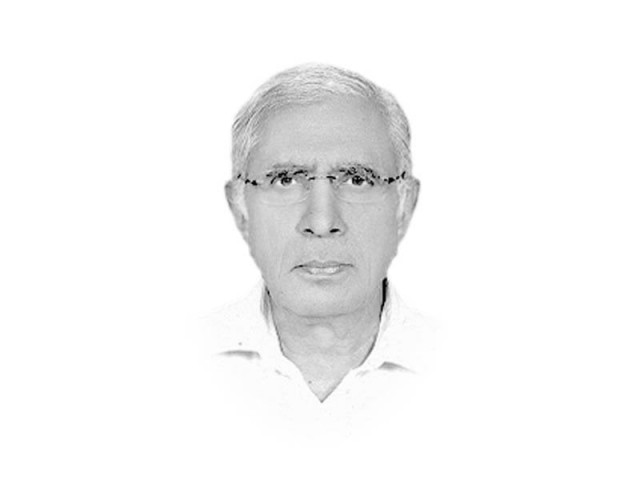Mr Keynes’s ‘long run’
The austerity formula has proved, in the long run, to be a stagnation trap for countries that went to the Fund

The writer served as Executive Editor of The Express Tribune from 2009 to 2014
But in order to grow at this rate, the economy would need investment to the tune of at least 25 per cent of the GDP at an annual average for the next 10 to 15 years. However, our current rate of savings has been stagnating at around 14 per cent of the GDP over the last several years. The gap of almost about 11 percentage points between the required rate of investment and the existing rate of saving could be filled with borrowed resources. Borrowing is not bad as long as the borrowed resources are invested in economically and socially profitable avenues.
But over the years, resources from this source, especially the concessional ones, have come down to no more than a trickle because our traditional lenders now feel that it would be unfair to their own tax payers to keep pumping their hard-earned resources into a country which has shown no willingness to tax the incomes of its own citizens and neither has it invested the borrowed resources in profitable avenues.
This brings us to the most worn-out story line in our decades-old economic narrative which has not changed a bit since independence: the promise of successive governments, both the military and the civilian, to broaden the tax base. For ages we kept claiming that one million people paid income tax in our country. Now it transpires that only 800,000, out of a population of approximately 180 million, file their returns. And most of the revenues collected are through indirect taxation which is a regressive practice and a big chunk of direct taxation is collected through what is known as withholding taxes which again amounts to no more than a minuscule residual of huge settlements made through black cash in most of the major transactions.
The biggest source of black economy which, according to the finance minister, has reached almost the size of the white economy is the exemption allowed to incomes from agriculture. Today, most big businesses own huge land-holdings in barren regions. On books they show the profits earned from their other businesses as income from agriculture and declare losses from the former. Most of the professionals like doctors, engineers, lawyers, high-end educational institutions, hospitals, etc., share their taxes in three ways keeping a large part of the amount in their own private lockers, distributing the remaining balance between the tax collector (bribe) and the treasury (under-declaration).
All attempts to document the economy over the last at least 30 years have been foiled by the personnel of the Federal Board of Revenue with the connivance of the ruling elite, political as well as the military. In this digital age, there is no reason why there should be any physical contact between the taxpayer and the tax collector. But no government seems willing even to take look at this aspect of governance.
Another impediment to growth has been the IMF. We go to the Fund because we have explored and exhausted all other avenues except our own ability to raise the required resources from our own economy. The Fund in order to ensure that it would get back its loan imposes a lot of austerity conditions on the borrower assuring it at the same time that in the long run its economy would start growing at an accelerated rate.
‘In the long run we are all dead,’ so said John Maynard Keynes (1883-1946). But since World War II, the fundamentalists of the so-called ‘Washington Consensus’ have been coming up with their own self-serving definitions of the term ‘long run’ so as to sell ‘austerity’ to the poor countries of the Third World as the panacea for all their economic ills. But the austerity formula has proved, in the long run, to be a stagnation trap for countries that went to the Fund seeking a loan.
Published in The Express Tribune, June 10th, 2015.
Like Opinion & Editorial on Facebook, follow @ETOpEd on Twitter to receive all updates on all our daily pieces.



















COMMENTS
Comments are moderated and generally will be posted if they are on-topic and not abusive.
For more information, please see our Comments FAQ